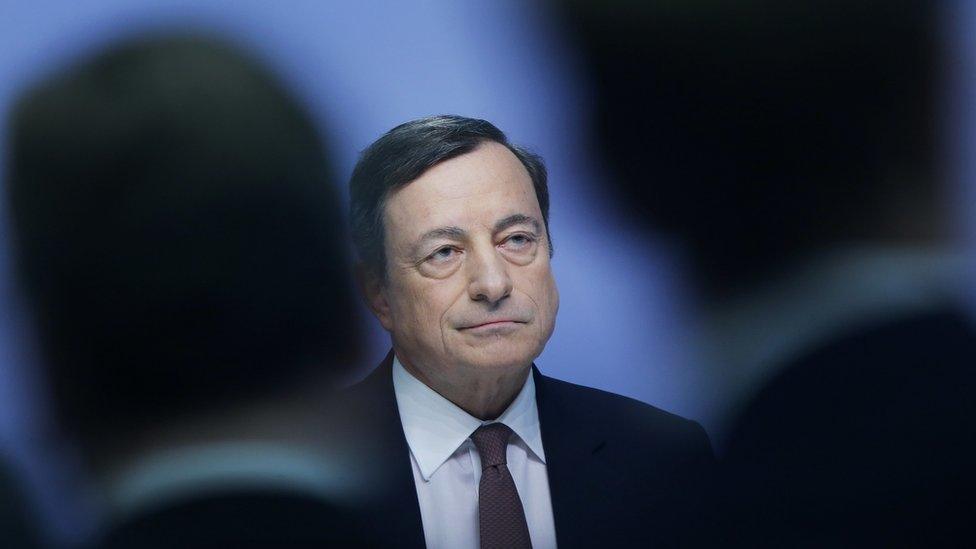Eurozone inflation could turn negative, Mario Draghi warns
- Published

Mario Draghi dismissed growing criticism in Germany of the bank's monetary policy
Eurozone inflation could turn negative again this year, European Central Bank chief Mario Draghi has warned, as the bank kept interest rates unchanged.
However, Mr Draghi said inflation should start rising before the year is out and pick up further in 2017.
Speaking at the bank's monthly press conference, Mr Draghi warned that risks to economic growth remain "tilted to the downside".
He called on European governments to act "more decisively" to boost growth.
"In order to reap the full benefits from our monetary policy measures, other policy areas must contribute much more decisively, both at the national and at the European levels," Mr Draghi said in Frankfurt.
The ECB chief also dismissed growing criticism in Germany of the bank's ultra-loose monetary policy: "We have a mandate to pursue price stability for the whole of the eurozone and not only for Germany alone. We obey the law, not the politicians because we're independent."
No changes to rates had been expected this month after the ECB announced fresh stimulus measures in March.
The main interest rate was reduced from 0.05% to 0%, while the bank deposit rate was cut further from minus 0.3% to minus 0.4%.
The negative rate means that banks must pay the ECB to park cash - a move intended to encourage more lending to businesses.
The ECB's bond-buying programme was also expanded in March from €60bn a month to €80bn. As well as government debt, the bank will now be allowed to use its newly printed money to buy bonds issued by companies as well.
The ECB has been taking action to try to stimulate growth in the eurozone's economy and prevent deflation.
Inflation in the eurozone stood at zero last month - well below the ECB's target of close to 2%.
- Published10 March 2016